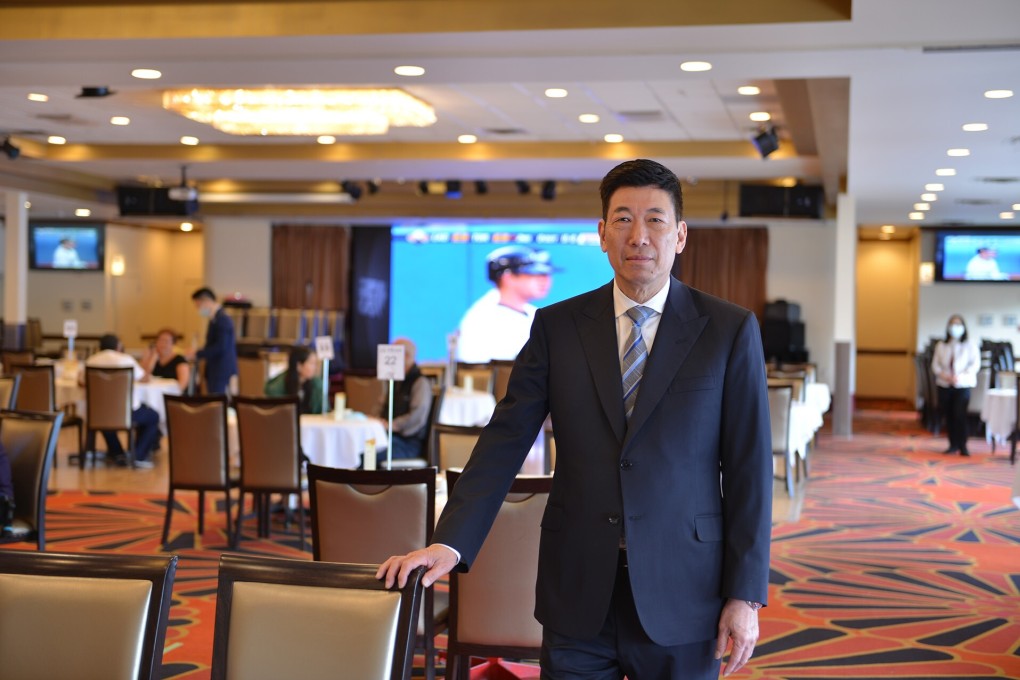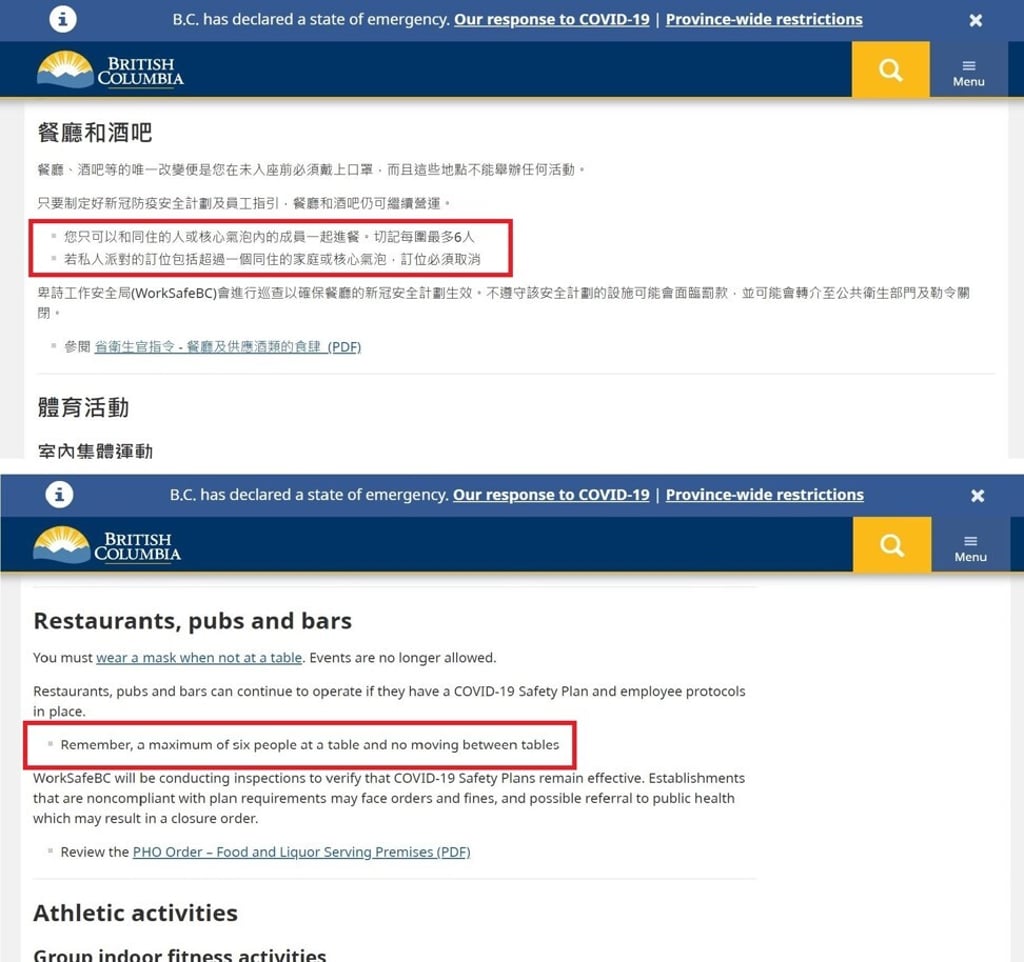Chinese speakers got harsher coronavirus dining rules than English speakers, in British Columbia government blunder
- The Chinese rules were only changed by BC’s Ministry of Health to match less-strict English rules after the disparity was pointed out by the SCMP
- One Chinese restaurateur blamed the ministry’s translation mistake for having ‘scared away’ his customers

British Columbia’s government gave Chinese speakers stricter Covid-19 rules than all other residents, in directives that were only changed this week when the discrepancy was pointed out by the South China Morning Post.
The rules in both traditional and simplified Chinese on the BC Ministry of Health’s website told restaurant customers that they “may only dine or eat with persons from your same household or same core bubble”, while restaurateurs were told that “any reservation for a private party that includes more than one household or their core bubble must be cancelled”.
Spokesman Calvin Cen said on Wednesday the ministry “apologises for the confusion”, and the Chinese advice had now been changed to match the English advice. While it was recommended that diners stick to one household per group, this was never an official health order, he said.

Delays in translations meant that sometimes there was a lag in getting the various rules to line up, Cen said. Archived versions show that on November 19, the English advice briefly matched the stricter Chinese rules, but by the next night, the English rules had been changed to remove the one-household-per-table directives.